第23章 Chapter 6(2)
It was chiefly from this uncle that Miss Browning and her brother heard the now often-repeated stories of their probable ancestors,Micaiah Browning,who distinguished himself at the siege of Derry,and that commander of the ship 'Holy Ghost'who conveyed Henry V.to France before the battle of Agincourt,and received the coat-of-arms,with its emblematic waves,in reward for his service.Robert Browning was also indebted to him for the acquaintance of M.de Ripert-Monclar;for he was on friendly terms with the uncle of the young count,the Marquis de Fortia,a learned man and member of the Institut,and gave a letter of introduction --actually,I believe,to his brother Reuben --at the Marquis's request.The friendly relations with Carlyle,which resulted in his high estimate of the poet's mother,also began at Hatcham.
On one occasion he took his brother,the doctor,with him to dine there.
An earlier and much attached friend of the family was Captain Pritchard,cousin to the noted physician Dr.Blundell.He enabled the young Robert,whom he knew from the age of sixteen,to attend some of Dr.Blundell's lectures;and this aroused in him a considerable interest in the sciences connected with medicine,though,as I shall have occasion to show,no knowledge of either disease or its treatment ever seems to have penetrated into his life.
A Captain Lloyd is indirectly associated with 'The Flight of the Duchess'.
That poem was not completed according to its original plan;and it was the always welcome occurrence of a visit from this gentleman which arrested its completion.Mr.Browning vividly remembered how the click of the garden gate,and the sight of the familiar figure advancing towards the house,had broken in upon his work and dispelled its first inspiration.
The appearance of 'Paracelsus'did not give the young poet his just place in popular judgment and public esteem.
A generation was to pass before this was conceded to him.
But it compelled his recognition by the leading or rising literary men of the day;and a fuller and more varied social life now opened before him.
The names of Serjeant Talfourd,Horne,Leigh Hunt,Barry Cornwall (Procter),Monckton Milnes (Lord Houghton),Eliot Warburton,Dickens,Wordsworth,and Walter Savage Landor,represent,with that of Forster,some of the acquaintances made,or the friendships begun,at this period.
Prominent among the friends that were to be,was also Archer Gurney,well known in later life as the Rev.Archer Gurney,and chaplain to the British embassy in Paris.His sympathies were at present largely absorbed by politics.He was contesting the representation of some county,on the Conservative side;but he took a very vivid interest in Mr.Browning's poems;and this perhaps fixes the beginning of the intimacy at a somewhat later date;since a pretty story by which it was illustrated connects itself with the publication of 'Bells and Pomegranates'.
He himself wrote dramas and poems.Sir John,afterwards Lord,Hanmer was also much attracted by the young poet,who spent a pleasant week with him at Bettisfield Park.He was the author of a volume entitled 'Fra Cipollo and other Poems',from which the motto of 'Colombe's Birthday'
was subsequently taken.
The friends,old and new,met in the informal manner of those days,at afternoon dinners,or later suppers,at the houses of Mr.Fox,Serjeant Talfourd,and,as we shall see,Mr.Macready;and Mr.Fox's daughter,then only a little girl,but intelligent and observant for her years,well remembers the pleasant gatherings at which she was allowed to assist,when first performances of plays,or first readings of plays and poems,had brought some of the younger and more ardent spirits together.
Miss Flower,also,takes her place in the literary group.
Her sister had married in 1834,and left her free to live for her own pursuits and her own friends;and Mr.Browning must have seen more of her then than was possible in his boyish days.
None,however,of these intimacies were,at the time,so important to him as that formed with the great actor Macready.
They were introduced to each other by Mr.Fox early in the winter of 1835-6;the meeting is thus chronicled in Macready's diary,November 27.'Went from chambers to dine with Rev.William Fox,Bayswater....
Mr.Robert Browning,the author of 'Paracelsus',came in after dinner;I was very much pleased to meet him.His face is full of intelligence....
I took Mr.Browning on,and requested to be allowed to improve my acquaintance with him.He expressed himself warmly,as gratified by the proposal,wished to send me his book;we exchanged cards and parted.'
On December 7he writes:
'Read 'Paracelsus',a work of great daring,starred with poetry of thought,feeling,and diction,but occasionally obscure;the writer can scarcely fail to be a leading spirit of his time....'
He invited Mr.Browning to his country house,Elm Place,Elstree,for the last evening of the year;and again refers to him under date of December 31.
'...Our other guests were Miss Henney,Forster,Cattermole,Browning,and Mr.Munro.Mr.Browning was very popular with the whole party;his simple and enthusiastic manner engaged attention,and won opinions from all present;he looks and speaks more like a youthful poet than any man I ever saw.'
This New-Year's-Eve visit brought Browning and Forster together for the first time.The journey to Elstree was then performed by coach,and the two young men met at the 'Blue Posts',where,with one or more of Mr.Macready's other guests,they waited for the coach to start.
They eyed each other with interest,both being striking in their way,and neither knowing who the other was.When the introduction took place at Macready's house,Mr.Forster supplemented it by saying:
'Did you see a little notice of you I wrote in the 'Examiner'?'